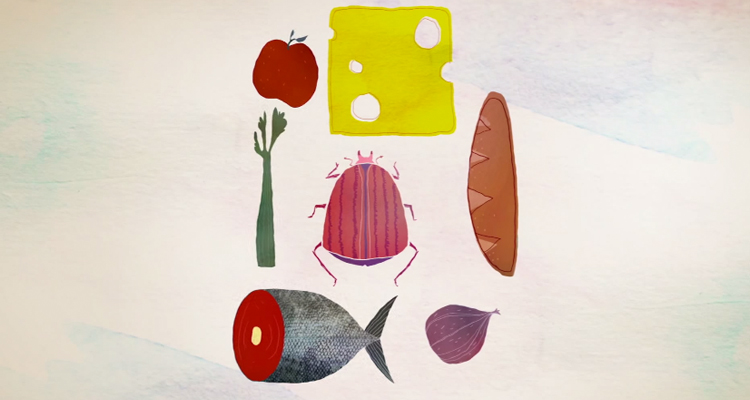I know what you’re thinking: ICK! Bugs?
That’s what I thought, too, before I saw this animated video lesson from TED Ed. Fact is, our ancestors not only ate bugs thousands of years ago, but billions of people still eat them every day—mainly in the tropics.
So why the “ick”? The video has a possible explanation. About 10,000 years ago in the great Fertile Crescent, where farming began, people became angry with insects for attacking crops. Over the generations, attitudes changed and we turned from eating bugs to viewing them as the enemy, especially in northern, agricultural-based societies.
But in places where it’s culturally accepted, some insects are delicacies. In Cambodia, they eat spicy, fried tarantulas. And in Mexico, chapulinas (e.g., grasshoppers) are toasted with garlic, lemon, and salt.
People who try cooked mealworms say they taste like roasted nuts; and that locusts are like shrimp; and crickets, a bit like popcorn! Sounds kind of yummy.
They not only taste pretty good, they’re actually good for you. And the environment, too!
Some insects are up to 80% protein, and can be packed with healthy fats, fiber, vitamins, and minerals. In fact, many edible bugs have as much iron as beef, which can help prevent anemia (iron deficiency) that afflicts nearly 30% of the population—the world’s most common nutrition problem.
Farming insects is “green.” It uses far less greenhouse gases, space, water, and expense compared to raising livestock. And bugs can be raised on vegetable matter that would otherwise be thrown away.
Not convinced? Watch the video and maybe (just maybe) you will be!
As usual, the lesson’s “Dig Deeper” section contains a lot more to, um, chew on.
- If you’re considering this topic for a social studies project, you’ll want to have a look at this colorful report from the United Nations about insect farming in Thailand.
- Are you inspired and adventurous enough to grow your own nutritious edible critters? This company will send you an inexpensive kit to get you started.
- Finally, the Insects Are Food website is a treasure trove of information, from recipes to lists of resources.
So, are you over the “ick” factor yet?





































